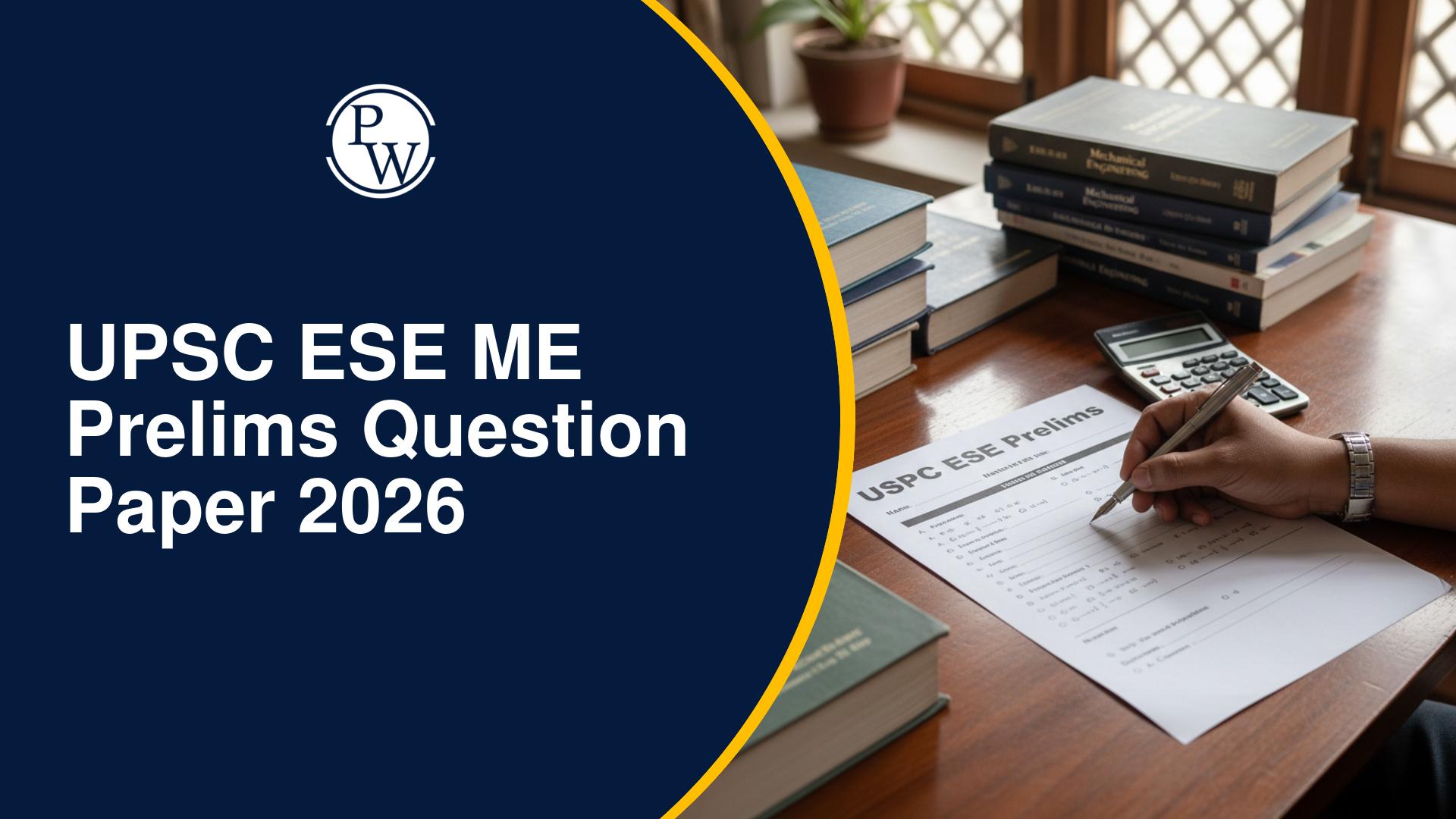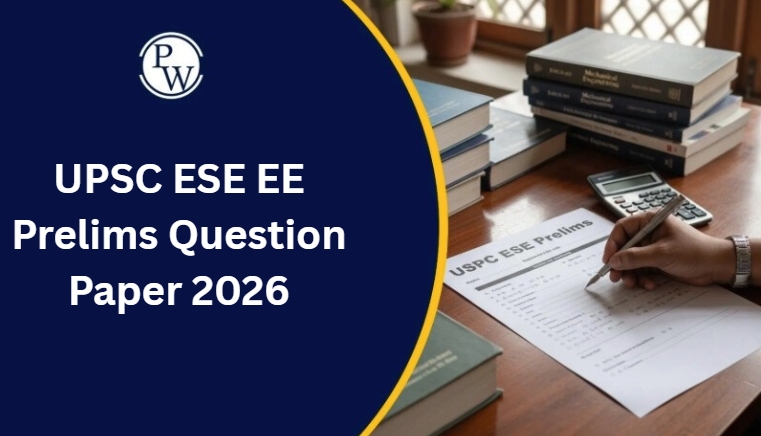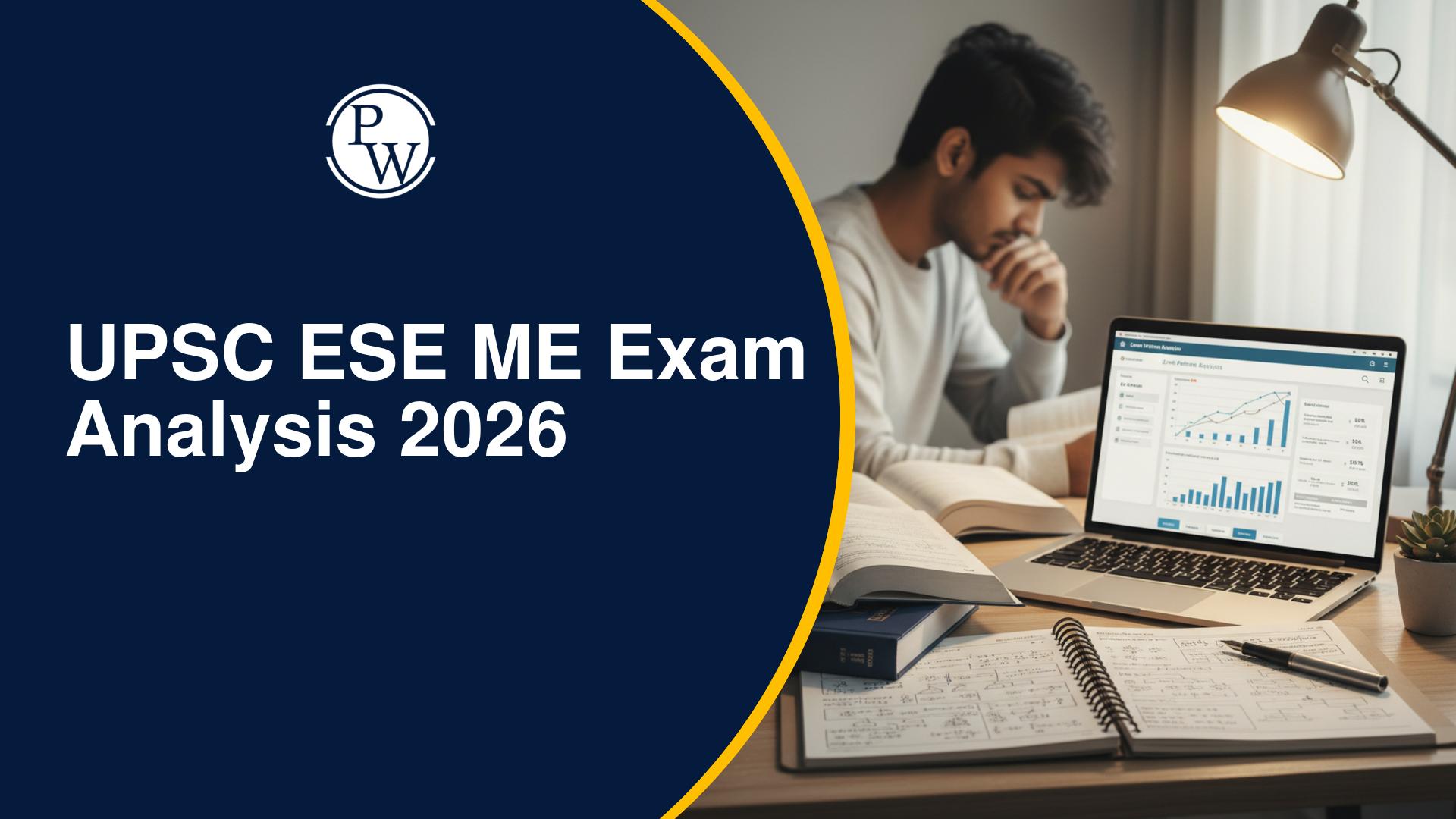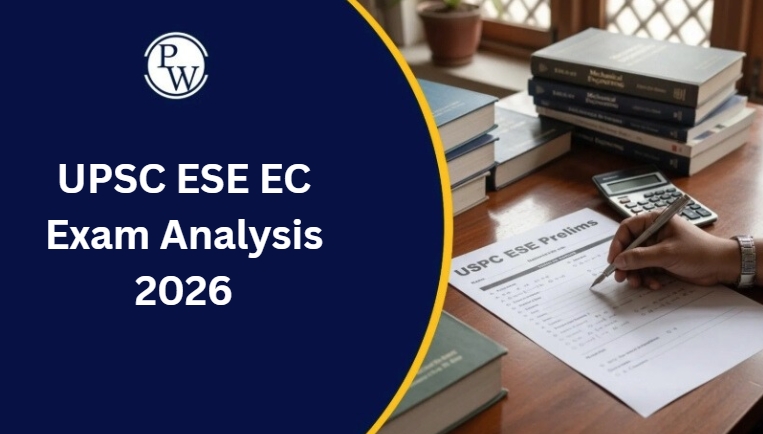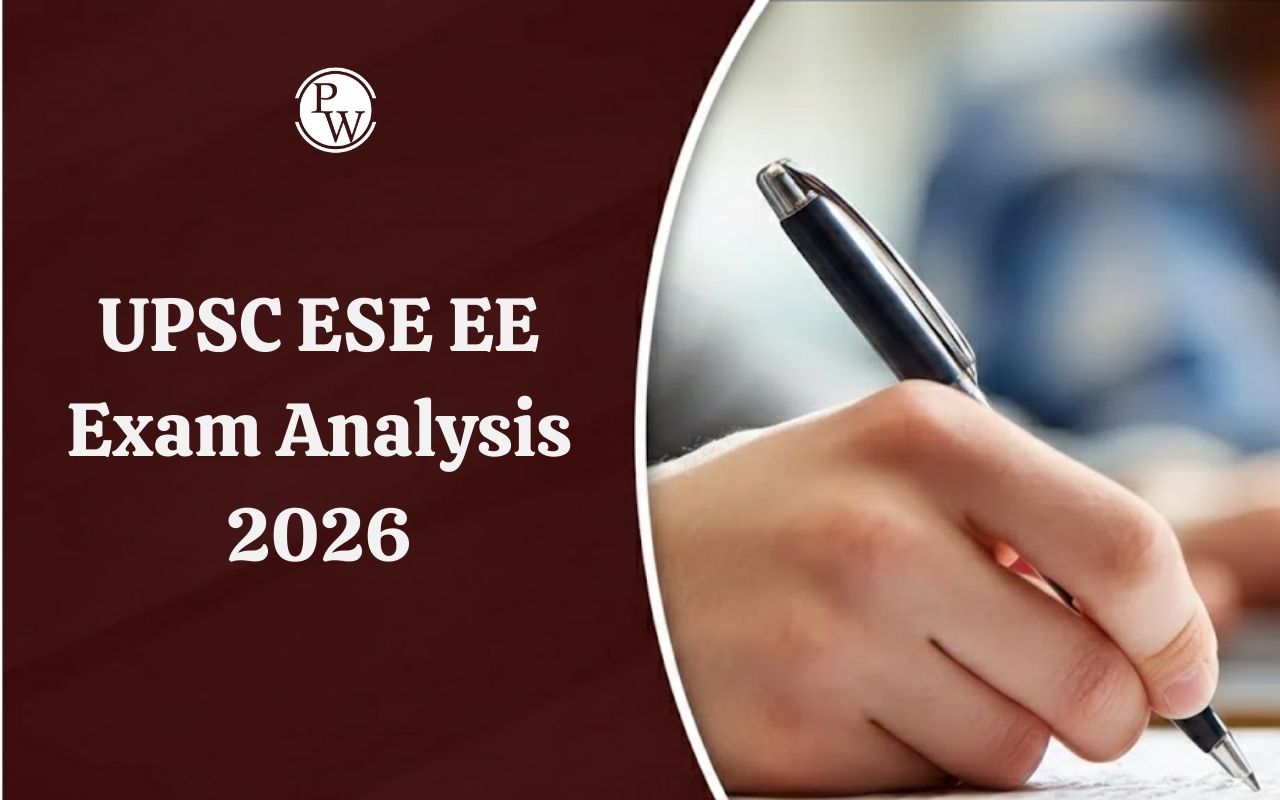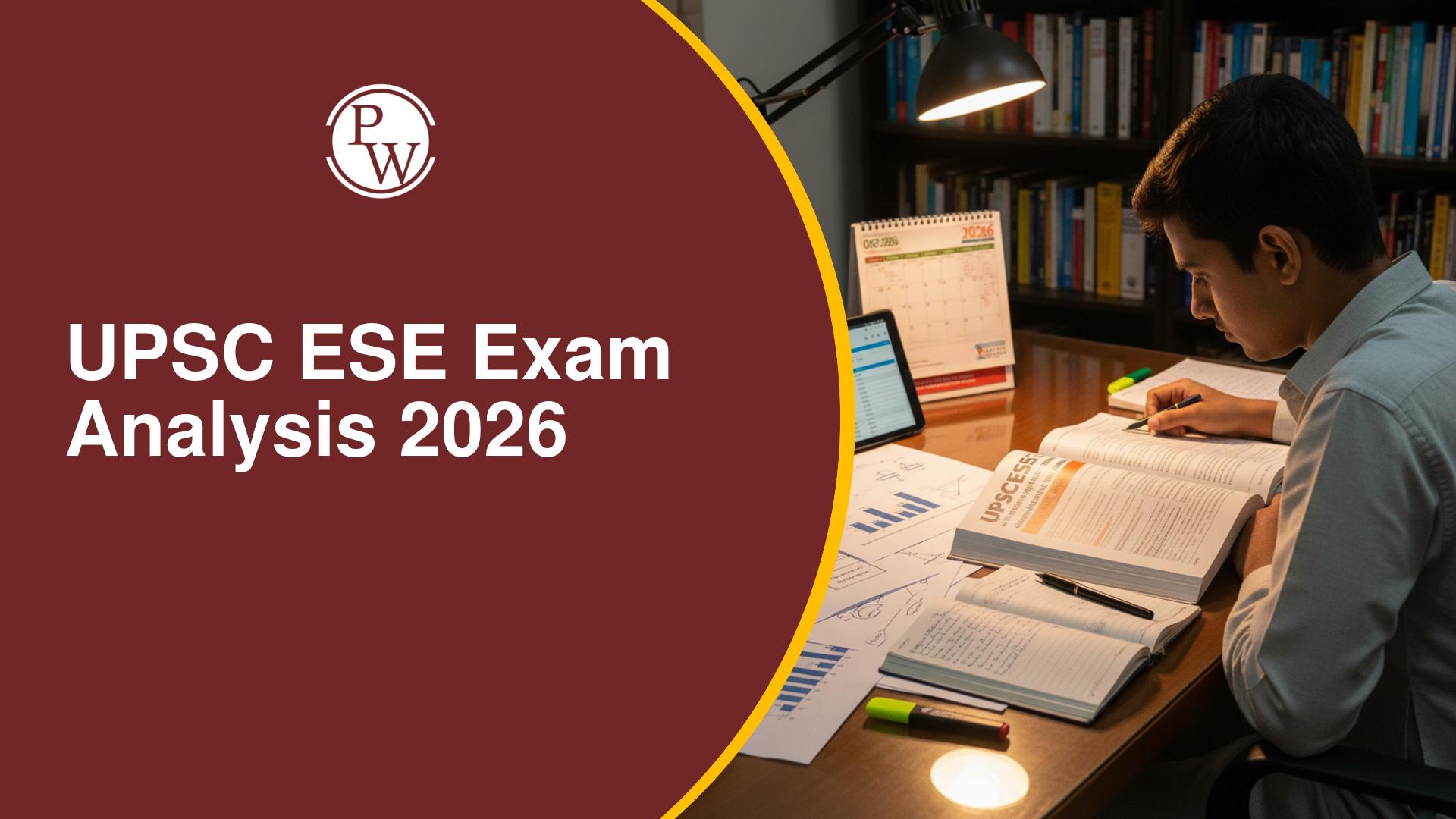
ISRO Vs ESE/IES- ISRO & ESE/ISE are two popular options for government career seekers. Both these careers are very prominent and competitive, making it difficult to choose one. While the ISRO and ESE/ISE, both provide government jobs with job security and benefits, they differ in several ways.
Furthermore, in order to be considered for IES (Indian Engineering Services), or ISRO ( Indian Space Research Organisation), candidates must pass many stages of examinations. The purpose of this article is to compare the qualities of these two professional paths, contrasting their eligibility criteria, exam pattern, job profiles , career growth and salary structures.
ISRO Vs ESE/IES
In this post, we will discuss the distinctions between ISRO and IES officials. Both ESE or engineering services exam officials and Indian Space And Research Organisation are reputable government entities that accomplish their jobs very effectively.
The full form IES in the engineering area is the Indian Engineering Service, usually known as the Engineering Services Examination (ESE). This examination is administered by the Union Public Service Commission (UPSC) in order to hire qualified engineers for various government posts. The Union government chooses persons to IES posts based on the UPSC's recommendations and standards. Because of the enormous number of candidates competing for a limited number of seats, the IES or ESE examination is often recognised as one of the most difficult examinations in India. Because the competition is fierce, completing the IES test is an enormous achievement.
On the other hand, ISRO stands for Indian Space Research Organisation. ISRO is the official space agency of the Government of India. The ISRO's headquarters are in Bengaluru, Karnataka. Jawaharlal Nehru established ISRO in 1962 as the Indian National Committee for Space Research (INCOSPAR) in response to Vikram Sarabhai's focus on the need of space research in India. In 1969, ISRO succeeded INCOSPAR. ISRO has been overseen by the Department of Atomic Energy since it was established in 1962. ISRO recruits applicants for various roles through recruiting exams such as the Indian Space Research Organisation Scientist/Engineer (ISRO SC). To qualify for the next round, you must pass the entrance exam.
Explore the Best ESE Online Coaching Offered by Physics Wallah Here!
ISRO Vs ESE/IES - Overview
Understanding the lifestyle associated with IES & ISRO positions enables candidates to make more educated decisions about their future. It enables people to assess if the lifestyle is suitable with their particular tastes, beliefs, and long-term objectives. Furthermore, the lifestyle factor may have a direct influence on the physical and mental well-being of the applicants. Consider the lifestyle connected with ISRO and IES/ESE positions.
| ISRO Vs ESE/IES - Overview | ||
| Aspect | ISRO Employees | IES Officers |
| Nature of Job | Specific domains within the public sector | Engineering roles in the government |
| Work environment | Regular office hours, fixed responsibilities | Dynamic and challenging engineering projects |
| Salary and benefits | Fixed salary, medical insurance, and benefits | Higher pay scales, allowances, and benefits |
| Social Status | Comparatively lower social recognition | Respected position in the engineering field |
| Career Growth | Limited vertical growth opportunities | Opportunities for growth within engineering |
| Job Security | Generally secure employment | Job security with pensions and benefits |
| Work-Life Balance | Fixed working hours, better balance | Demanding work schedules and project deadlines |
Also Read: IES Full Form
ISRO Vs ESE/IES - Eligibility Criteria
Understanding the eligibility criteria for the ISRO and IES/ESE examinations is critical for those interested in pursuing these career paths because it provides an overview of the educational qualifications, age limits, and other pertinent information required for IES, or ISRO recruitment.
Furthermore, by understanding these criteria, applicants may be able to select the test that best suits their credentials and interests. Let us now examine them.
| ISRO Vs ESE/IES - Eligibility Criteria (General) | |
| Particulars | Age Limit |
| ISE (Engineering Services)n. | Candidates must satisfy specific qualifying requirements in order to take the IES test. They must be Indian citizens with a bachelor's degree in engineering or technology from a reputable university. Specific educational requirements and age limitations may differ based on the engineering subject and the candidate's category. |
| ISRO | You should have a bachelor's degree in engineering in a related field, such as aeronautical engineering, electrical engineering, mechanical engineering, or computer science engineering. Specific qualifying criteria for individual roles may differ, therefore look at the official ISRO website or announcements for the latest information. |
ISRO Vs ESE/IES - Exam Pattern
While IES has three phases of selection (prelims, mains, and interview), ISRO only has two: a written test followed by an interview. Continue reading to discover more about each of the two exam patterns.
| ISRO Vs ESE/IES - Entrance Exam | |
| Particulars | Details |
| ISRO | Based on the nature of the role, ISRO may conduct a written exam or shortlist individuals for an interview after assessing the applications. The written exam will often include technical questions about your engineering subject as well as general aptitude questions. If you pass the written test, you will be invited to an interview. The interview will evaluate your technical expertise, problem-solving abilities, and aptitude for the post. You may be given a job with ISRO if you perform well in the interview and satisfy the selection requirements. It is critical to monitor the official ISRO website or job news for recruitment alerts, qualifying requirements, and application procedures, as they may change over time. Furthermore, obtaining relevant experience and abilities in your technical sector might increase your chances of getting chosen. |
| IES/ESE | The IES test consists of three stages of selection: Stage 1: Preliminary Examination (Objective Type): This stage is a screening test that consists of two objective papers (General Studies and Engineering Discipline-specific). Stage 2: Main Examination (Conventional Type): This stage comprises two conventional papers in the engineering subject of the candidate. Personality Test (Interview): Candidates who pass the Main Examination are invited to a personality test administered by the UPSC. The candidate's personality, communication abilities, and technical expertise are all evaluated during the interview. |
ISRO Vs ESE/IES - Departments
There are various departments within IES and ISRO where applicants can get employment after clearing the tests. Some of the demanding departments are listed here.
The UPSC Engineering Services Exam selects people for the government's technical side. Candidates who take the UPSC IES may be assigned to one of the following departments/services:
- Civil Department: Central Water Engineering Service, Indian Ordnance Factories Services, AEE in Border Road Engineering Services GR-A
- Mechanical Department: Indian Inspection Service Group A, Indian Naval Armament Service, etc.
- Electrical Department: Central Power Engineering Service, Indian Defence Service of Engineers, etc.
- Electronics: Indian Telecom Service Group-A, etc.
On the other hand, The major goal of the Department of Space (DOS) is to promote the development and use of space science and technology to aid the nation's overall growth.DOS has created the following software to help with this:
- Launch Vehicle project with indigenous capabilities for spacecraft launch.
- INSAT Programme for telecommunications, broadcasting, meteorology, educational development, and so forth.
- Remote Sensing Programme, which uses satellite images for a variety of developmental goals.
- Space science and technology research and development with the goal of applying them to national development.
With the establishment of the Indian National Committee for Space Research (INCOSPAR) in 1962, the country's space operations were launched. The work on the Thumba Equatorial Rocket Launching Station (TERLS) in Thiruvananthapuram began the same year. ISRO (Indian Space Research Organisation) was founded in August 1969. In June 1972, the Government of India formed the Space Commission and the Department of Space (DOS), and in September 1972, ISRO was transferred to DOS.
Also Suggested: ISRO Full Form
ISRO Vs ESE/IES - Engineering Discipline
The table below summarizes the engineering disciplines for the ISRO & ISE/ESE-
| ISRO Vs ESE/IES - Engineering Discipline | |
| Particulars | Details |
| ISRO | ISRO seeks to employ professionals with a master's degree in mechanical, electrical, or computer engineering or a PhD in astronomy, physics, or mathematics. |
| ESE/IES | The IES exam includes a wide range of engineering disciplines, such as Civil Engineering, Mechanical Engineering, Electrical Engineering, Electronics and Telecommunication Engineering, and others. Candidates can select a discipline that corresponds to their educational background. |
ISRO Vs ESE/IES - Job Profile
Check out the many job choices open to engineering professionals who pass the IES/ESE and ISRO examinations, as shown below.
| ISRO Vs ESE/IES - Job Profile | |
| Particulars | Details |
| ISRO | Positions as a scientist/engineer allow you to engage in research and development, technological development, scientific analysis, project management, and other related fields. Depending on the organisation and the field of specialisation, the particular job tasks will differ. |
| ESE/IES | Candidates are assigned to technical jobs in government departments and organisations after passing the IES examination and the ensuing selection procedure. Engineering project management, design and development, quality control, inspection, maintenance, and other related jobs may all be found in these fields. |
ISRO Vs ESE/IES - Career Growth
When aspirants are aware of the compensation structures of various job options, such as the IES/ESE and ISRO, they will be able to make better informed decisions about their selected career paths. Furthermore, it assists customers in developing a better grasp of the financial benefits connected with each alternative and assessing if those benefits meet their expectations and financial goals.
| ISRO Vs ESE/IES - Career Growth | |
| Particulars | Details |
| ISRO | Positions as a scientist/engineer can give a platform for career advancement and growth. Professionals with more experience and skill may be able to take on higher-level responsibilities, lead initiatives, and contribute to scientific discoveries. |
| ESE/IES | The IES offers tremendous chances for professional advancement. Engineers who pass the IES examination can gradually climb through the ranks and achieve higher positions of responsibility and influence in their respective departments. |
ISRO Vs ESE/IES - Salary Structures
According to the 7th Pay Commission, IES workers, commonly known as Scale "A" officials, are paid INR 56,100 per month. This puts their pay on level with that of other government servants. Furthermore, the income of IES officers has increased significantly over time, with the in-hand wage formerly being around INR 42,000, and currently being roughly INR 55,135 per month.
| IES/ESE Salary Structure | |||
| Rank or Level | Service duration | Grade pay | Salary structure |
| Junior level | On Joining | INR 5400 | INR 15,600 – INR 39,100 |
| Senior Scale | 5 to 6 years of joining | INR 6600 | INR 15,600 – INR 39,100 |
| Junior Administrative Grade | Minimum 10 years | INR 7600 | INR 15,600 – INR 39,100 |
| Selection grade scale | 20 years and above | INR 8700 | INR 37,400 – INR 67,000 |
| (Chief Engineer L2 / Jt. G M) | – | – | – |
| Super time grade | – | INR 8700 | INR 37,400 – INR 67,000 |
| (Chief Engr. / Additional GM) | – | – | – |
| Cabinet Secretary Grade | Fixed | N/A | INR 90,000 |
| Apex Pay Scale | Fixed | N/A | INR 80,000 |
On the other hand, The pay and benefits for ISRO scientists have been updated thanks to the 7th Pay Commission. Scientists at ISRO now receive a monthly base salary of INR 15,600 with a grade pay of INR 6,600. As a result of a rise in their grade pay, an ISRO scientist's highest monthly income has also been raised to INR 80,000. Following the 7th pay commission, the ISRO Scientist Salary are listed below-
| ISRO Salary Structure | ||
| ISRO Scientist Profile | ISRO Scientist Salary | Grade Pay |
| Scientist/ Engineer- SD | INR 15,600 - INR 39,100 | INR 6,600 |
| Scientist/ Engineer- SE | INR 15,600 - INR 39,100 | INR 7,600 |
| Scientist/ Engineer- SF | INR 37,400 - INR 67,000 | INR 8,700 |
| Scientist/ Engineer- SG (Medical Officer-SG) | INR 37,400 - INR 67,000 | INR 8,900 |
| Scientist/ Engineer- H | INR 37,400 - INR 67,000 | INR 10,000 |
| Outstanding Scientist (Additional Secretary, DOS) | INR 67,000 - INR 79,000 | - |
| Distinguished Scientist | INR 75,500 - INR 80,000 | - |
| Secretary, DOS, Member (Finance) | INR 80,000 | - |
Also Read: ISRO Exam Preparation Strategy
ISRO Vs ESE/IES FAQs
Which is better- ISRO Vs ESE/IES?
Which is tougher - ISRO Vs ESE/IES?
Can I join ISRO through the ESE /IES exam?
Which employment between the IES, and ISRO offers the best work-life balance?

